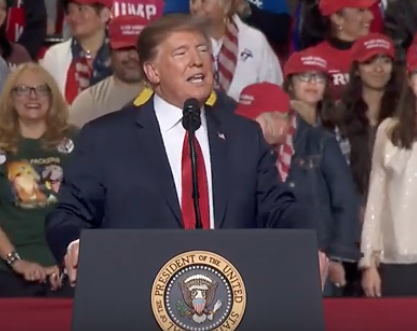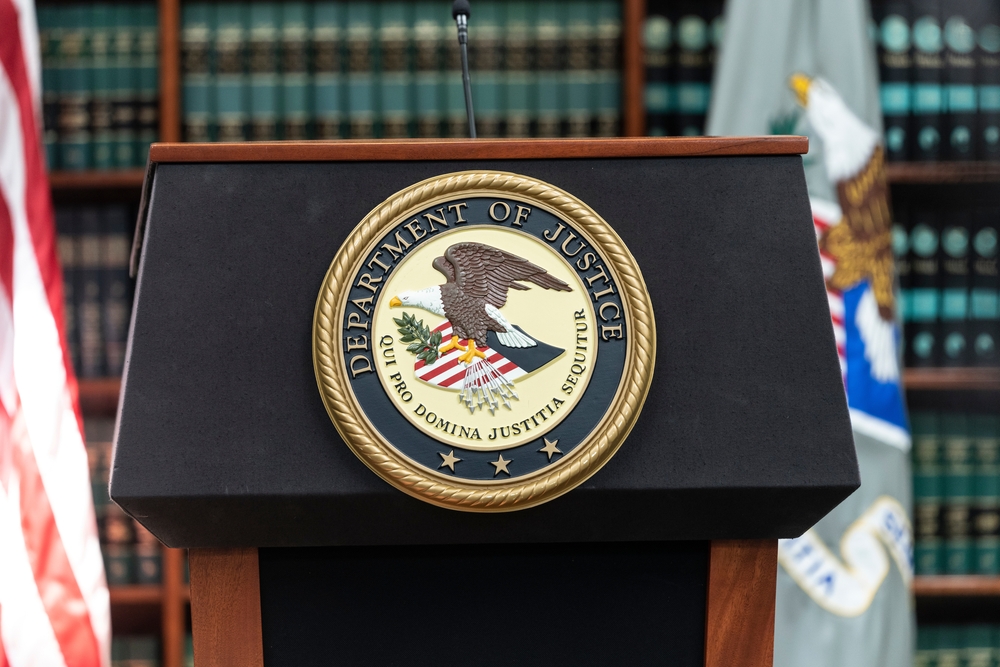The writer, an FBI agent for 31 years, retired as resident agent in charge of the Ann Arbor office in 2006. He has a law degree from the University of Nebraska-Lincoln.
By Greg Stejskal
Last Saturday Former President Donald Trump was acquitted on one article of impeachment charging him with inciting an insurrection.
Many aspects of the impeachment process are foreign to me, but during my career as an FBI agent, I was mostly involved with investigating and prosecuting federal crimes. I wondered if the incitement of an insurrection charge against former President Trump could be prosecuted criminally, and if there had been analogous prosecutions.
In August 1969, on successive nights, seven people were murdered in Los Angeles. Five people were killed at the home of film director Roman Polanski and his actress wife Sharon Tate. Polanski was out of town but Tate, who was pregnant, and four friends were brutally murdered. The following night, Leno and Rosemary LaBlanca were stabbed to death.
There did not seem to be any connection between the victims. But the crime scenes were both horrific. The principal weapons used were knives. The scenes were very bloody and there was graffiti on the walls, made with blood, including the words “Helter Skelter.”
We know these events today as the Manson Family murders. Four members of the group, three women and one man, along with Manson, were charged with first-degree murder and conspiracy to commit murder.
At trial, which lasted nine and a half months, no evidence was presented that Manson participated in the murders or ever instructed any of the defendants to murder any of the victims. (Manson stayed at the Spahn ranch, where the family lived, during the first night of the murder spree.) Manson was a charismatic leader of the cult and preached an eclectic philosophy grounded in white supremacy and from various sources – principally from his reading of the Book of Revelations that he believed foretold the coming of the Beatles. Manson told his followers that the Beatles’ song “Helter Skelter” denoted acts of mayhem and violence that would bring on an apocalyptic race war.
The murders were meant to be attributed to Blacks and precipitate the race war. The three women and Manson were convicted of first-degree murder and conspiracy to commit murder despite Manson never directly ordering the violence. The prosecution contended his convincing the cult of his bizarre philosophy constituted an overt act that propelled the conspiracy.
This is obviously an imperfect analogy as to what Trump did up to and following the election, which ultimately culminated in the insurrection at the U.S. Capitol. But Trump does seem to be a cult leader, with a significantly larger cult than Manson’s.
A certain segment of his supporters has unquestioning loyalty to him. Sen. Ben Sasse, R-Nebraska, characterized it this way: “Politics is not about the weird worship of one dude.”
Trump, since the beginning of his campaign, has preached that mail-in balloting is inherently fraudulent, and if he were to lose, it could only because the election was “rigged.”
Trump did lose the election, by about 7 million votes and a 306-232 electoral votes. Despite the results, Trump claimed that he had won the election, that it had been stolen from him due to massive fraud – the “Big Lie.”
No proof of substantial fraud has been produced by Trump or any of his supporters. In addition to lying, Trump has refused to denounce the white nationalist militia groups and QAnon conspiracy aficionados – conspiracies that are every bit as loony as anything Manson dreamed up. These groups were well represented among the insurrectionists who visited so much violence on the Capitol and its defenders.
Rep. Jamie Raskin, one the House managers prosecuting the impeachment trial, summed up the cult psychology of both Trump and Manson with a quote from Voltaire: Those who can make you believe absurdities can make you commit atrocities.
‘Trial by combat’
When Trump and his surrogates called for the “Stop the Steal” rally Jan. 6, it was becoming clear that it was a last-ditch effort to delay finalization of the election. Congress would certify the states’ electoral votes that day, and Vice President Mike Pence would preside. Trump had been trying to persuade Pence to disqualify the votes from some states where voting had been close but were carried by Joe Biden. Pence had told Trump that he had no constitutional authority to disqualify electoral votes. Trump reportedly told Pence he was being a “pussy.”
At the rally, several speakers warmed up the crowd with bellicose language. Rudy Giuliani told the crowd: “There needed to be a trial by combat.” When Trump took the stage, he thanked and praised the previous speakers, specifically naming Giuliani and in effect, endorsing their message.
Trump’s speech was also bellicose, with phrases like “fight like hell” and not being “weak if you want to take back your country.” He did temper his rhetoric somewhat, saying they would march to Capital in a “peaceful” and “patriotic” manner. He also said he would march with them. He didn’t. He went back to the White House and watched the insurrection on television. As a former reality TV star, Trump might have thought watching it on TV was the same as being there.
So, did Trump and his surrogates intend to incite an insurrection at the Capitol?
No limit to presidential actions
Trump had shown he was willing to do anything to avoid relinquishing the presidency. He knew his last chance was to stop or disrupt Congress’ certification of the electoral votes. If that could be achieved by an insurrection at the Capitol, so be it. Probably the best indication of Trump’s intent was that, after learning the Capitol had been breached and senators, members of the House and the vice president were under siege, he made no effort to stop it.
During the insurrection, House minority leader Kevin McCarthy called Trump and asked the president to tell the insurrectionists to stop. Trump first replied he had no control over the mob; they were “antifa.” McCarthy said that wasn’t true; they were Trump supporters. Trump replied: “Well Kevin, I guess they must care more about the election than you do.”
If a criminal prosecution of Trump and others were contemplated, much more investigation would be needed — unlike the impeachment trial, witnesses would be necessary. Some investigation is currently being done by the FBI, and the House managers have produced a comprehensive timeline documented with video and audio recordings. I think incitement of an insurrection, conspiracy, aiding and abetting are all viable prosecutable offenses that should be pursued.
Trump has sown the wind and reaped the whirlwind.






